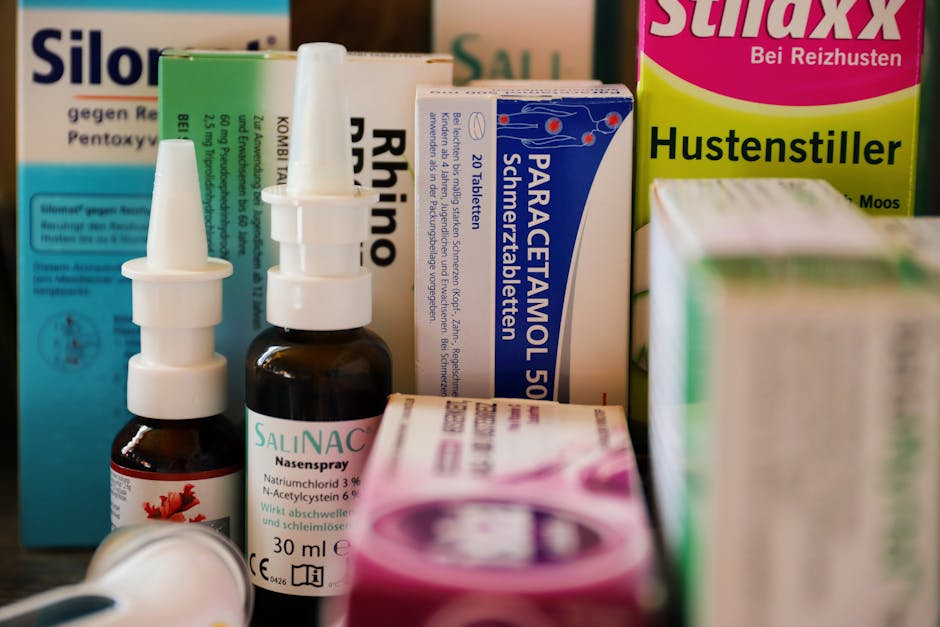In a week marked by both triumphs and tragedies, three significant stories have captured global attention: the alarming rise in cough syrup-related deaths, the celebration of groundbreaking scientific achievements at the 2023 Nobel Prize ceremony, and the escalating threat of antimicrobial resistance. Together, these narratives highlight the delicate balance between innovation, healthcare challenges, and the unintended consequences of progress.
The Cough Syrup Crisis: A Global Wake-Up Call
Recent reports have revealed a disturbing surge in deaths linked to contaminated cough syrups, particularly in low- and middle-income countries. Over the past year, more than 300 children in nations like Gambia, Indonesia, and Uzbekistan have died after consuming syrups tainted with toxic substances such as diethylene glycol and ethylene glycol. These chemicals, commonly used in industrial solvents, can cause acute kidney failure and death even in small doses.
Investigations trace many of these contaminated syrups to manufacturers in India, raising critical questions about regulatory oversight and the global pharmaceutical supply chain. The World Health Organization (WHO) has issued urgent alerts, calling for stricter quality control and the immediate withdrawal of unsafe products. This crisis underscores the need for robust regulatory frameworks and international collaboration to ensure the safety of medicines, especially for vulnerable populations.
Nobel Prize 2023: Celebrating Scientific Excellence
Amidst the grim news, the 2023 Nobel Prize ceremony brought a wave of inspiration. This year’s laureates were honored for their transformative contributions to science and humanity. The Nobel Prize in Physiology or Medicine was awarded to Dr. Katalin Karikó and Dr. Drew Weissman for their pioneering work on mRNA technology, which paved the way for the rapid development of COVID-19 vaccines. Their research has saved millions of lives and opened new possibilities for treating other diseases.
In Chemistry, the prize recognized three scientists for their groundbreaking work on quantum dots, tiny particles with applications in electronics and medicine. Meanwhile, the Nobel Peace Prize highlighted the efforts of activists advocating for human rights and environmental sustainability. These awards remind us of the power of science and perseverance in addressing global challenges.
Antimicrobial Resistance: The Silent Pandemic
While the Nobel Prize celebrates human ingenuity, the growing threat of antimicrobial resistance (AMR) serves as a sobering reminder of the limitations of modern medicine. AMR occurs when bacteria, viruses, fungi, and parasites evolve to resist the drugs designed to combat them, rendering treatments ineffective. According to the WHO, AMR is already responsible for over 1.27 million deaths annually, with projections suggesting this number could rise to 10 million by 2050 without urgent action.
The overuse and misuse of antibiotics in human medicine, agriculture, and livestock have accelerated this crisis. In countries like India, where antibiotic consumption is among the highest globally, the situation is particularly dire. Experts warn that without significant changes in antibiotic production and usage, common infections could become untreatable, and routine medical procedures like surgeries could pose life-threatening risks.
Connecting the Dots
These three stories—cough syrup deaths, the Nobel Prize, and antimicrobial resistance—are interconnected threads in the broader narrative of global health. The cough syrup crisis exposes the consequences of weak regulatory systems and the need for equitable access to safe medicines. The Nobel Prize highlights the transformative potential of scientific research. And the AMR crisis emphasizes the importance of sustainable practices and global collaboration to preserve the effectiveness of life-saving drugs.
As we navigate these complex issues, one thing is clear: the choices we make today will shape the health and well-being of future generations. Strengthening healthcare systems, supporting scientific innovation, and addressing global inequities are essential steps toward a healthier world.
At NextMinuteNews, we remain committed to providing in-depth coverage of these critical issues, because staying informed is the first step toward meaningful change.




